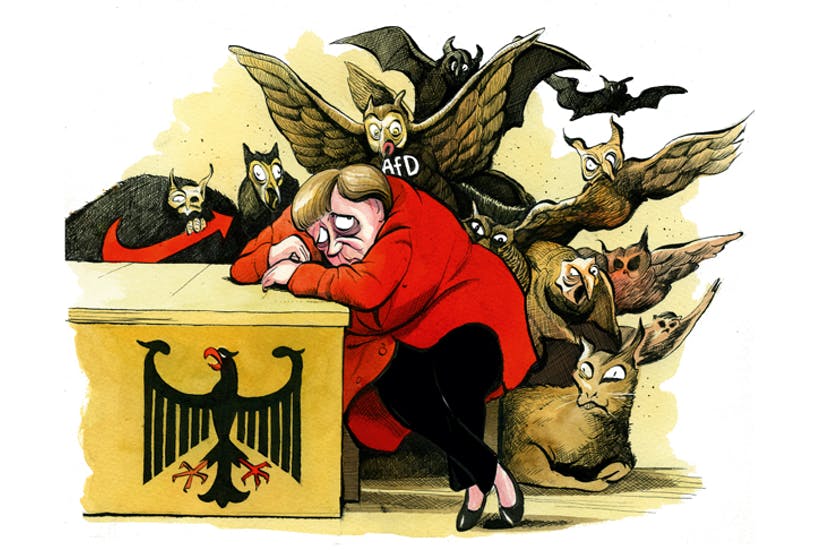German conservatives are in disarray. Caught between the migrant crisis and Merkel’s looming departure, they are fighting over their own political future.
On the surface, Angela Merkel’s Christian Democrats (CDU) and their smaller sister-party, the Bavarian Christian Social Union (CSU), argue over whether German police forces should be allowed to reject certain asylum seekers at the border. But the actual conflict runs deeper: it is not simply about whether or not to reject a few thousands refugees at the border; this is about the very future of German conservative politics.
Merkel has now led German conservatives for thirteen years. And although she has brought them continuous electoral success during that period, her style of governance has left the grouping increasingly divided, as has her decision to tack to the centre on many issues. She has gradually steered the CDU onto a path of moderate conservatism, if not outright centrism. Her policy decisions, even where contentious within her own party, were often declared as “without any alternative.” Real political debate went missing.
Many within her own party rejected this approach. But Merkel’s electoral and political success forced her critics into silence. Now that Merkel’s departure from the top office is edging closer – and with her internal power weakened since the last elections – critics seem increasingly willing to take up the fight.
The CSU started this fight during the height of the refugee crisis in 2015, when it openly condemned Merkel’s approach not to close Germany’s borders to asylum seekers. It continued it earlier this year, when the party’s chief whip publicly campaigned for a “conservative revolution” in Germany and, implicitly, within CDU and CSU. The current conflict over migration policy is but the latest iteration of this conflict. The party fears that Merkel’s moderate stance will continue to aid the rise of the hardline anti-immigrant Alternative für Deutschland. To prevent this, they want to move back to the right themselves.
So far, Merkel’s Christian Democrats still publicly back her against the attacks from their sister-party CSU. But this backing is not universal. Many in the party agree with the substance of the CSU’s criticism towards Merkel’s refugee policy. They just dislike the way it is pushed.
There is already a group of mostly young CDU politicians champing at the bit to ‘renew’ the party once Merkel is gone. One of their most prominent representatives, German health minister Jens Spahn, would like his party to follow the path of Austrian right-winger Sebastian Kurz. The Bavarian CSU would be happy about this as well.
But there are also those who want to continue Merkel’s path of the CDU as a largely centrist project. They argue that in its role “as the only major party left” they had to find voters “in the so-called middle, but also on the right and left of it.” The camp goes at length to stress that conservatism is but one of the political tenets on which the CDU is built.
It is difficult to say which camp will win the fight for the CDU’s steering wheel in the post-Merkel period. And whether that will bring the party closer together again with its arch-conservative Bavarian partners.
Merkel’s departure gives German conservatives the opportunity for large-scale renewal. They now have to decide whether and how they want to use it.
Leopold Traugott is a policy analyst at Open Europe






Comments